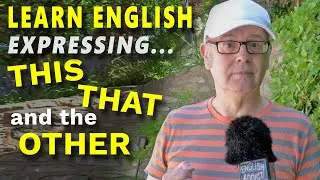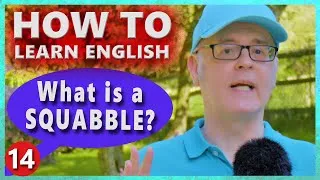Silakan klik dua kali pada teks bahasa Inggris di bawah ini untuk memutar video.
New videos
Situs ini akan memperkenalkan Anda pada video YouTube yang berguna untuk belajar bahasa Inggris. Anda akan melihat pelajaran bahasa Inggris yang diajarkan oleh guru-guru terbaik dari seluruh dunia. Klik dua kali pada subtitle bahasa Inggris yang ditampilkan di setiap halaman video untuk memutar video dari sana. Subtitle bergulir selaras dengan pemutaran video. Jika Anda memiliki komentar atau permintaan, silakan hubungi kami menggunakan formulir kontak ini.







